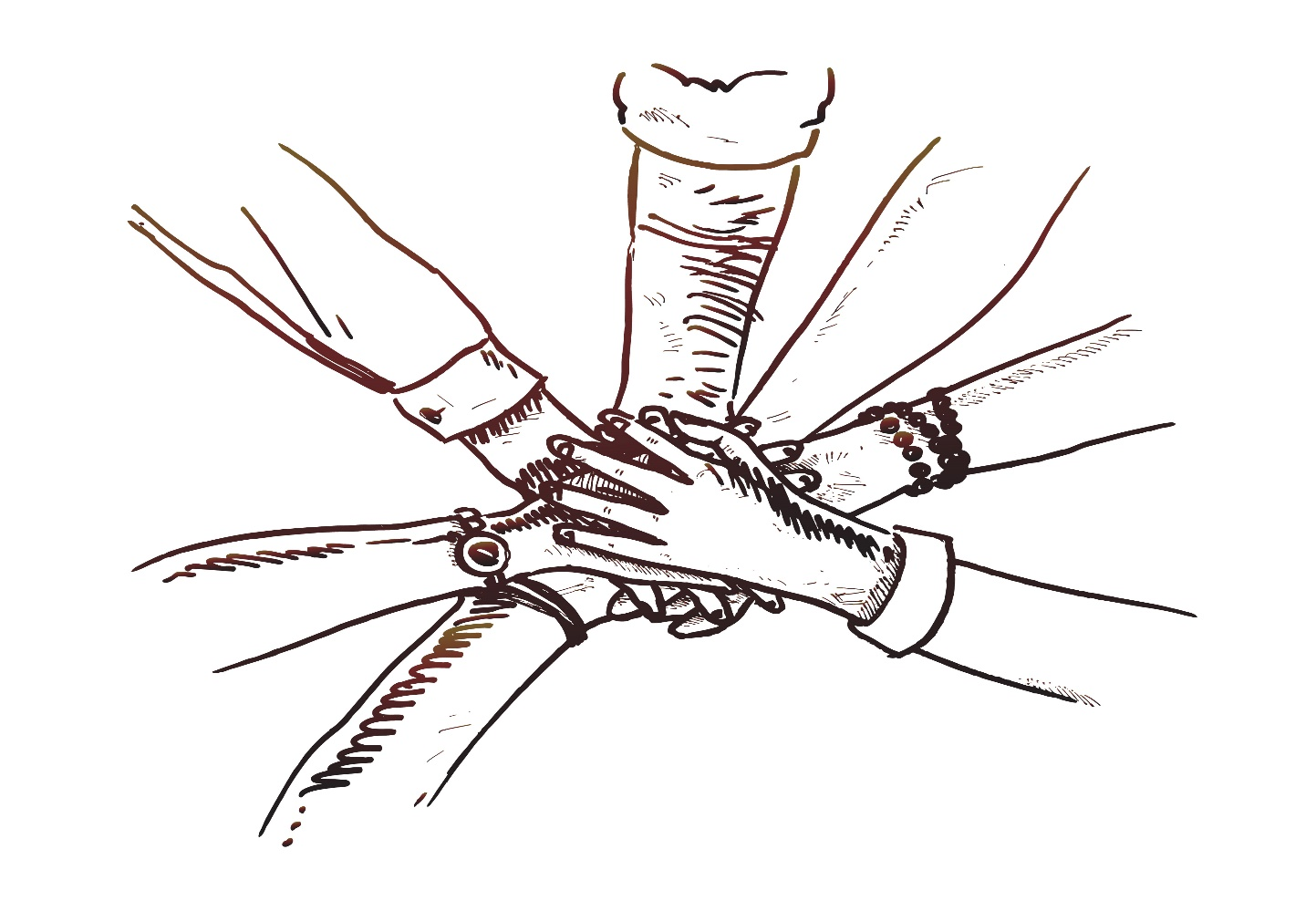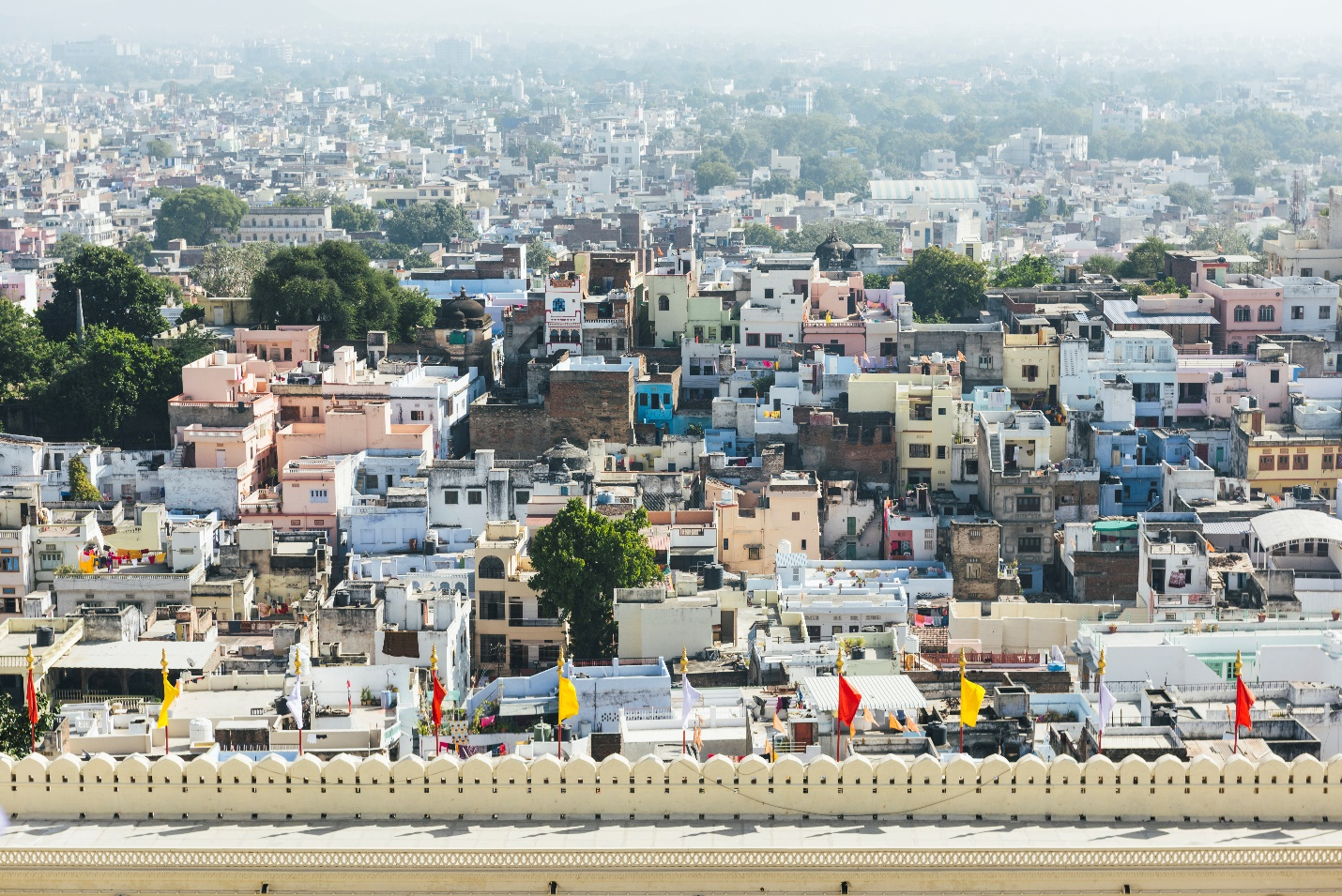The AYUSH sector in India has witnessed significant growth in recent years, emerging as a prominent domain in terms of revenue and employment. AYUSH encompasses traditional systems of medicine such as Ayurveda, Yoga, Unani, Siddha, and Homeopathy. The sector includes clinics, wellness centers, research, herbal products, education, and holistic health practices. India's AYUSH sector is rapidly expanding, supported by increasing awareness, demand for natural therapies, and government initiatives to promote traditional medicine systems.
The AYUSH healthcare delivery system in India is bifurcated into public and private sectors. The public sector focuses on promoting and providing access to AYUSH treatments through government institutions and centers across the country. On the other hand, the private sector plays a significant role in offering a wide range of AYUSH services, including specialized treatments, wellness programs, and herbal products. India's AYUSH sector benefits from a rich heritage of ancient healing practices and a vast pool of skilled practitioners. The country's cost-effective approach to AYUSH treatments makes it a preferred destination for individuals seeking alternative and holistic healthcare solutions. The affordability and effectiveness of AYUSH therapies have contributed to a surge in domestic and international interest, positioning India as a hub for traditional medicine research and practice.
The AYUSH industry in India is experiencing notable growth, driven by increasing consumer interest in traditional medicine, supported by governmental backing, and propelled by a burgeoning export market, thus affirming its pivotal role in shaping India's healthcare and wellness landscape. Additionally, the AYUSH service sector is valued at US$ 26 billion in 2024, culminating in an industry worth surpassing US$ 50 billion.
The Ministry of AYUSH’s Union Budget allocation for FY26 has seen a significant increase to Rs. 3,992.9 crore (US$ 461.3 million), marking a 14.2% rise from the previous year's revised estimate of Rs. 3,497.6 crore (US$ 404.1 million). Out of the total autonomous bodies which have been allocated Rs. 1,965.8 crore (US$ 227.1 million), the Central Council for Research in Ayurvedic Sciences has been given Rs. 457.2 crore (US$ 52.8 million), Central Council for Research in Unani Medicine has been given Rs. 214.5 crore (US$ 24.7 million) and All India Institute of Ayurveda has been given Rs. 251.2 crore (US$ 29 million).
India's Exports of AYUSH and herbal products from India during the FY25 grew 5.86%, at Rs. 5,907 crore (US$ 689.34 million) with the quantity growing almost 21.46% as compared to FY24.
India reported a 15-fold rise in the Ayush sector over ten years (2015-2025), alongside supplying medicines to over 200 countries, meeting 60% of global vaccine demand, providing health cover to over 600 million people, and supporting over 1,600 Global Capability Centres driving pharma innovation.
Projections indicate that the AYUSH-based healthcare and wellness sector is on course to achieve a valuation of US$ 70 billion by 2025. Concurrently, wellness tourism in India is experiencing significant growth and is poised to emerge as a primary attraction for international travellers seeking holistic rejuvenation and well-being experiences. India’s wellness tourism, valued at Rs. 1,64,164 crore (US$ 19.43 billion) in 2024 and projected to reach Rs. 2,57,237 crore (US$ 29.88 billion) by 2031, is growing rapidly due to affordable Ayurvedic and yoga experiences and initiatives like the Ayush visa. India boasts a diverse range of wellness offerings, encompassing Ayurvedic retreats aimed at aligning the mind, body, and spirit; Yoga and meditation centers providing immersive programs for mental and physical well-being; and naturopathy and holistic wellness destinations promoting natural healing techniques and healthy lifestyle practices. In India, IMARC reports that the Ayurvedic products market reached Rs. 62,600 crore (US$ 7.84 billion) in 2022 and is projected to reach Rs. 1,82,400 crore (US$ 21.19 billion) by 2028, growing at a CAGR of 19.3% from 2023 to 2028.
The Ministry has strategically established a comprehensive nationwide network with strong global connections, showcasing its unwavering commitment to fostering global well-being. Over 150 research studies have been meticulously conducted to explore the effectiveness and potential of AYUSH interventions, demonstrating a concerted effort to advance knowledge in this field. Innovative formulations like AYUSH-64 have shown promising prospects in managing various health conditions, marking the dawn of a potential era of breakthroughs in healthcare. Pioneering institutions such as the All India Institute of Ayurveda (AIIA) and National Institutes of Ayurveda (NIA) have emerged as leaders in AYUSH education and research, significantly contributing to the enhancement of academic standards in this sector. The number of colleges has substantially increased from a modest count of 334 in 2014 to an impressive total of 1,137 colleges as of the current year, reflecting burgeoning interest and recognition for AYUSH disciplines and indicating robust growth and diversification within the educational infrastructure supporting AYUSH studies. Additionally, there are 7,51,768 registered practitioners and a total of 36,848 AYUSH dispensaries.
The Ministry of AYUSH is globalising traditional medicine through the International Cooperation Scheme and WHO projects like the Global Traditional Medicine Centre (GTMC) and the International Classification of Health Interventions (ICHI) module.
The WHO recognised India’s pioneering AI-driven innovations in Ayush, including platforms like the SAHI, NAMASTE, and Ayush Research Portals, Ayurgenomics, and predictive diagnostics, highlighting the country’s leadership in integrating traditional medicine with digital health and evidence-based global healthcare.
Government initiatives promoting AYUSH education and training aim to foster a skilled workforce, meeting industry demands.
Uttar Pradesh is expanding AYUSH services with 100-bed wellness centres in every district, six new AYUSH colleges, and subsidies of 30-75% for key medicinal crops, aiming to boost rural incomes, create jobs, and strengthen health tourism.
On June 5, 2025, Ujjain hosted the Spiritual & Wellness Summit, with Madhya Pradesh advancing its vision to become a global centre for holistic health, spiritual tourism, and sustainable wellness living.
On April 4, 2025, Prime Minister Mr. Narendra Modi announced the establishment of a Centre of Excellence to promote research, training, and global dissemination of Traditional Medicine during the Bay of Bengal Initiative for Multi-Sectoral Technical and Economic Cooperation (BIMSTEC) Summit in Bangkok, strengthening India-Thailand collaboration in Ayurveda and traditional healing systems.
On January 25, 2025, India’s Prime Minister, Mr. Narendra Modi, and Indonesia’s President, Mr. Prabowo Subianto, witnessed the exchange of a Memorandum of Understanding (MoU) between the Ministry of Ayush, Government of India, and the Indonesian Food and Drug Authority. The MoU focuses on Traditional Medicine Quality Assurance, marking a significant step in enhancing global standards for traditional medicine.
In February 2025, a significant initiative was taken to enhance the well-being of senior citizens and tackle the rising issue of substance abuse. The Ministry of Ayush and the Department of Social Justice and Empowerment (DoSJE) have formalized a Memorandum of Understanding (MoU). This strategic collaboration aims to implement Ayush-based interventions that promote geriatric healthcare and address substance abuse concerns. Rising income means a steady growth in the ability to access healthcare and related services.
In January 2025, at Hyderabad House in New Delhi, India’s Prime Minister Mr. Narendra Modi and Indonesia’s President Prabowo Subianto observed the exchange of a Memorandum of Understanding (MoU) between the Ministry of Ayush, Government of India, and the Indonesian Food and Drug Authority. This MoU is centred on Traditional Medicine Quality Assurance and represents a significant advancement in the enhancement of global standards for traditional medicine.
In November 2024, Prime Minister Mr. Narendra Modi inaugurated and laid the foundation stone for multiple development projects in Darbhanga, Bihar, with a total investment of approximately Rs. 12,100 crore (US$ 1.43 billion). A prominent highlight is the establishment of the All-India Institute of Medical Sciences (AIIMS) in Darbhanga, which aims to deliver advanced healthcare services to Bihar and neighbouring regions, including parts of West Bengal and Nepal.
As of November 2024, the Ministry of AYUSH has certified 1039 Ayushman Arogya Mandir facilities for NABH Entry Level Certification. Additionally, 10,000 Geriatric camps were organized across India from June to September 2024, focusing on health assessments for the elderly.
Exports of AYUSH and herbal products increased by 5.86% in FY25, rising from Rs. 5,580 crore (US$ 651.17 million) in FY24 to Rs. 5,907 crore (US$ 689.34 million), according to the Ministry of Commerce and Industry.
Agricultural and Processed Food Products Export Development Authority’s (APEDA’s) BHARATI initiative aims to boost India’s agri-food exports to Rs. 4,40,150 crore (US$ 50 billion) by 2030 while supporting 100 startups, including those innovating in AYUSH-based food and wellness products.
Uttar Pradesh is offering a 30% capital investment subsidy for setting up wellness centres and resorts that provide AYUSH-based therapies like Ayurveda, Yoga, Naturopathy, Unani, Siddha, and Homoeopathy.
In November 2025, Madhya Pradesh cabinet approved 373 regular posts and 806 on-call positions for AYUSH hospitals across 13 districts, including new 50-bed and 30-bed facilities.
In November 2025, India and Germany deepened collaboration in traditional and integrative healthcare at the third Joint Working Group Meeting in Berlin, advancing joint research, regulatory alignment, and public-health integration of evidence-based traditional medicine.
In September 2025, India and Mauritius expanded Ayush collaboration through the first overseas Jan Aushadhi Kendra and an AYUSH Centre of Excellence, strengthening healthcare and traditional medicine ties.
On February 25, 2024, Prime Minister Mr. Narendra Modi inaugurated two significant AYUSH projects virtually, marking a milestone in India's journey towards holistic healthcare. The Central Research Institute of Yoga & Naturopathy in Jhajjar, Haryana, and the National Institute of Naturopathy titled 'NISARG GRAM' in Pune, Maharashtra were unveiled.
Chief Minister of Uttar Pradesh Mr. Yogi Adityanath highlighted the immense potential of the AYUSH medical system in transforming Uttar Pradesh into a leading health tourism destination. By efficiently implementing AYUSH practices, the state can not only offer holistic healthcare but also create substantial employment opportunities and significantly enhance farmers' incomes through AYUSH-based agriculture. The inauguration of 271 development projects, including integrated AYUSH hospitals and Ayushman Arogya Mandirs, underscores the government's dedication to expanding and integrating traditional medical systems.
In the Union Budget 2024-25, the government allocated Rs. 92,333 crore (US$ 10.78 billion) to the Ministry of Health and Family Welfare (MoHFW).
In May 2025, The Ministry of Ayush and WHO signed a Memorandum of Understanding (MoU) to create a Traditional Medicine module in the International Classification of Health Interventions (ICHI), formally recognising Ayurveda, Yoga, Siddha, and Unani, backed by India’s Rs. 26 crore (US$ 3 million) contribution to boost global access, clinical documentation, and evidence-based integration. India has also signed 25 country-level MoUs, 52 institute-level agreements, set up 15 Academic Chairs, and established 43 AYUSH Information Cells in 39 countries, strengthening research, education, and international outreach.
On August 30, 2024, Chief Minister of Kerala Mr. Pinarayi Vijay announced a Rs. 1,000 crore (US$ 119 million) investment over the past three years to develop Ayush infrastructure in the state, including an International Institute of Ayurveda Research and a new Ayurveda medical college, during the inauguration of the two-day Global Ayurveda Summit and Kerala Healthcare Tourism in Kochi.
On September 27, 2024, the Indian government announced plans to include 170 AYUSH treatment packages in the Ayushman Bharat health insurance scheme (AB-PMJAY) and establish special medical stores at the tehsil level for easier access to traditional medicines.
With 24 country-to-country MoUs and 46 institute-level partnerships, AYUSH is fostering global collaboration, enhancing knowledge exchange, and promoting cultural recognition of alternative medicine practices.
In February 2024, the Ministry of AYUSH and the Research and Information System for Developing Countries (RIS) signed a Memorandum of Understanding (MoU) in New Delhi. This collaboration aims to outline the AYUSH Service sector's overview and bolster academic cooperation, emphasizing its potential for Medical Tourism.
The Global AYUSH Investment and Innovation Summit (GAIIS), held from April 20-22, 2022, concluded with remarkable achievements. The AYUSH sector secured Letter of Intents exceeding US$ 1.09 billion (Rs. 9,000 crore) in three days, spanning FMCG, Medical Value Travel, pharmaceuticals, technology, diagnostics, and agriculture.
In January 2024, Union Ayush Minister Mr. Sarbananda Sonowal laid the foundation stone for the ‘Ayush Diksha’ centre in Bhubaneswar, a first-of-its-kind facility aimed at developing human resources for Ayush professionals, with a budget of Rs. 30 crores (US$ 3.58 million). This state-of-the-art centre, located within the Central Ayurveda Research Institute, will provide training programs, enhance skills, and support research in Ayurveda, contributing to an integrated approach to healthcare alongside modern medicine.
On February 27, 2024, the Ministry of Ayush and the Research and Information System for Developing Countries (RIS) in New Delhi have signed a Memorandum of Understanding (MoU) aimed at enhancing academic cooperation, research, policy dialogue, and publications in the field of Indian Traditional Medicine.
India’s AYUSH sector stands at the forefront of a global wellness renaissance, blending ancient wisdom with modern innovation. With robust government support, expanding educational infrastructure, and growing global recognition, the sector is evolving into a key pillar of India’s healthcare and export ecosystem. As digital technologies, research collaborations, and wellness tourism continue to deepen their roots, AYUSH is poised to redefine holistic healthcare worldwide. The coming decade promises to position India not just as the birthplace, but as the global leader in traditional medicine and sustainable well-being.













